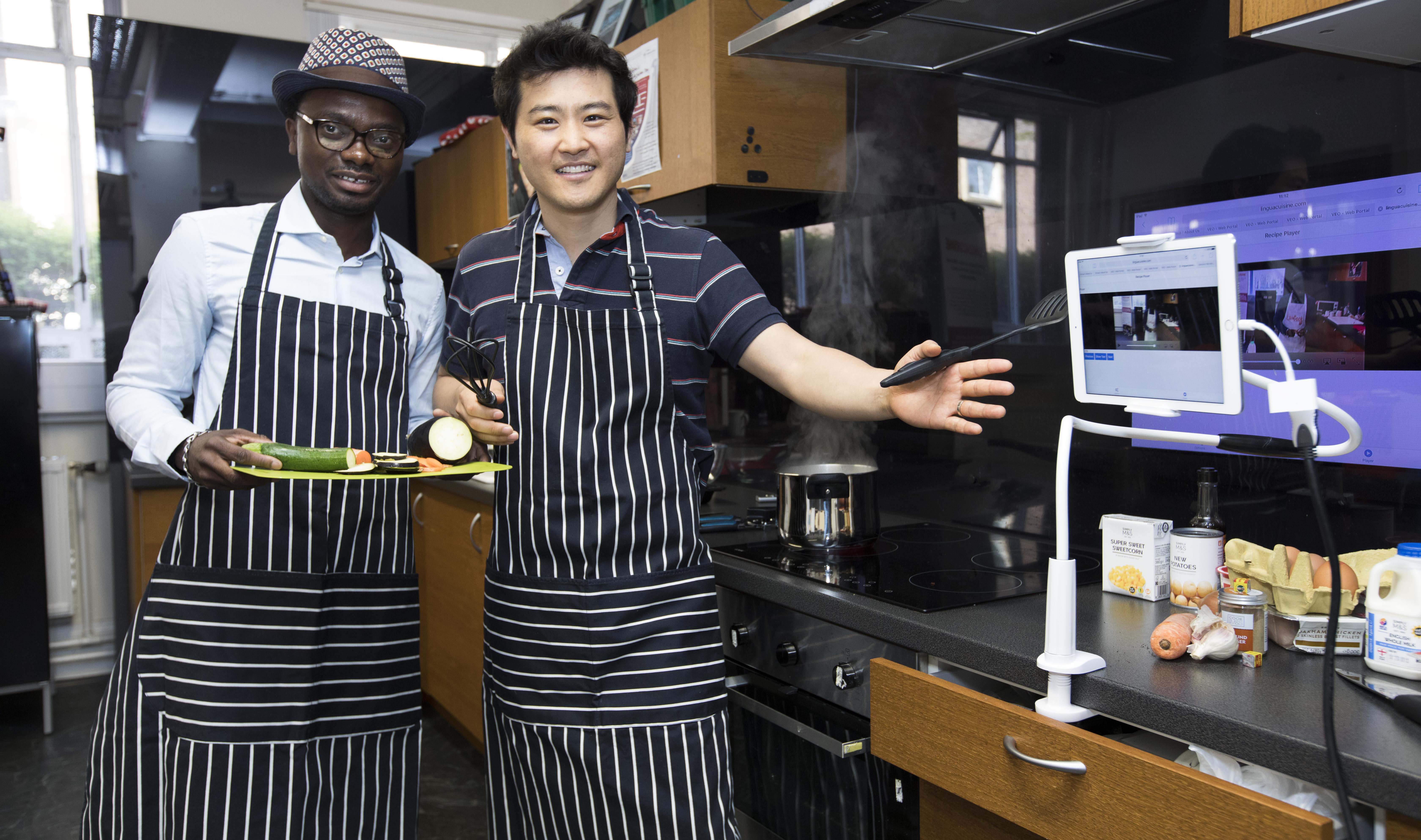Linguacuisine
New app is a recipe for success
Published on: 3 August 2018
Newcastle University experts have cooked up a new app to help people learn languages.
Learning a language
Linguacuisine uses cookery to help make learning a new language easier. Using a smartphone or tablet, learners follow a recipe in a different language. The web-based app uses video, photographs and written instructions to help the budding chef make a dish.
Developed by researchers in Newcastle University’s School of Education, Communication and Language Sciences and School of Computing‘s Openlab, users can choose from a wide range of recipes including cola fried chicken, kimchi pancakes and jam in 10 languages including English, Greek, Spanish and Italian.
“They may seem like unrelated pastimes,” says Paul Seedhouse, Professor of Educational and Applied Linguistics at Newcastle University. “But following a recipe brings a new language to life for a student or learner, rather than being something they learn by just sitting in a classroom.”
And as well as following recipes, users can upload their own by making short videos on their phone or tablet. The app and its accompanying website have been developed with the North East charity Action Foundation, which works with asylum seekers, refugees and migrants in the region. Members of the Workers Educational Association (WEA) have also been making videos and uploading recipes.

Digital kitchen
Among those involved in trialling the project is Wakanda Pouo, whose recipe of baked dish of eggs, chicken, bacon and vegetables is based on an African meal.
Wakanda, whose first language is French, said: “This is a great idea and I’ve liked being involved. I’ve also enjoyed adding my own recipe so people can try something different. People who first come to this country may feel nervous about trying to speak English if they only know a little, so the app gives them a way to try it out by themselves.”
Other recipes, including one for Geordie Jam, use a strong regional accent in the video to help people whose first language is not English, get used to the way North Easterners speak.
The Linguacuisine app builds upon the success of the University’s digital kitchen, which used similar principles to help students learn languages.
Newcastle University PhD student Jaeuk Park from South Korea, researched the digital kitchen as part of his studies and has contributed to the new app with recipes for kimchi pancakes and fried tofu. He says using the app is helping to expand his vocabulary. “It’s helped me to learn new words,” he says. “And that’s because of the physical action used in preparing the food, it helps you to remember. I made English scones and learned the word for sieve, which is something I had never heard of before.”
Accessible for everyone
Professor Seedhouse said: The digital kitchen works well but it can only stay in one place. The app has the same principles but makes it accessible to anyone with access to a tablet or smartphone –it’s the digital kitchen in your pocket.”
Linguacuisine is a collaboration between Newcastle University, Action Foundation (UK), Hellenic Open University (Greece), Università degli Studi di Modena e Reggio Emilia (Italy) and the Workers’ Educational Association (UK). It is funded by an Erasmus+ KA2 Strategic Partnership grant of €324K.
The Linguacuisine app is available free for all devices and can be found here. It is available on Google Play and will be available on Apple in the future.



